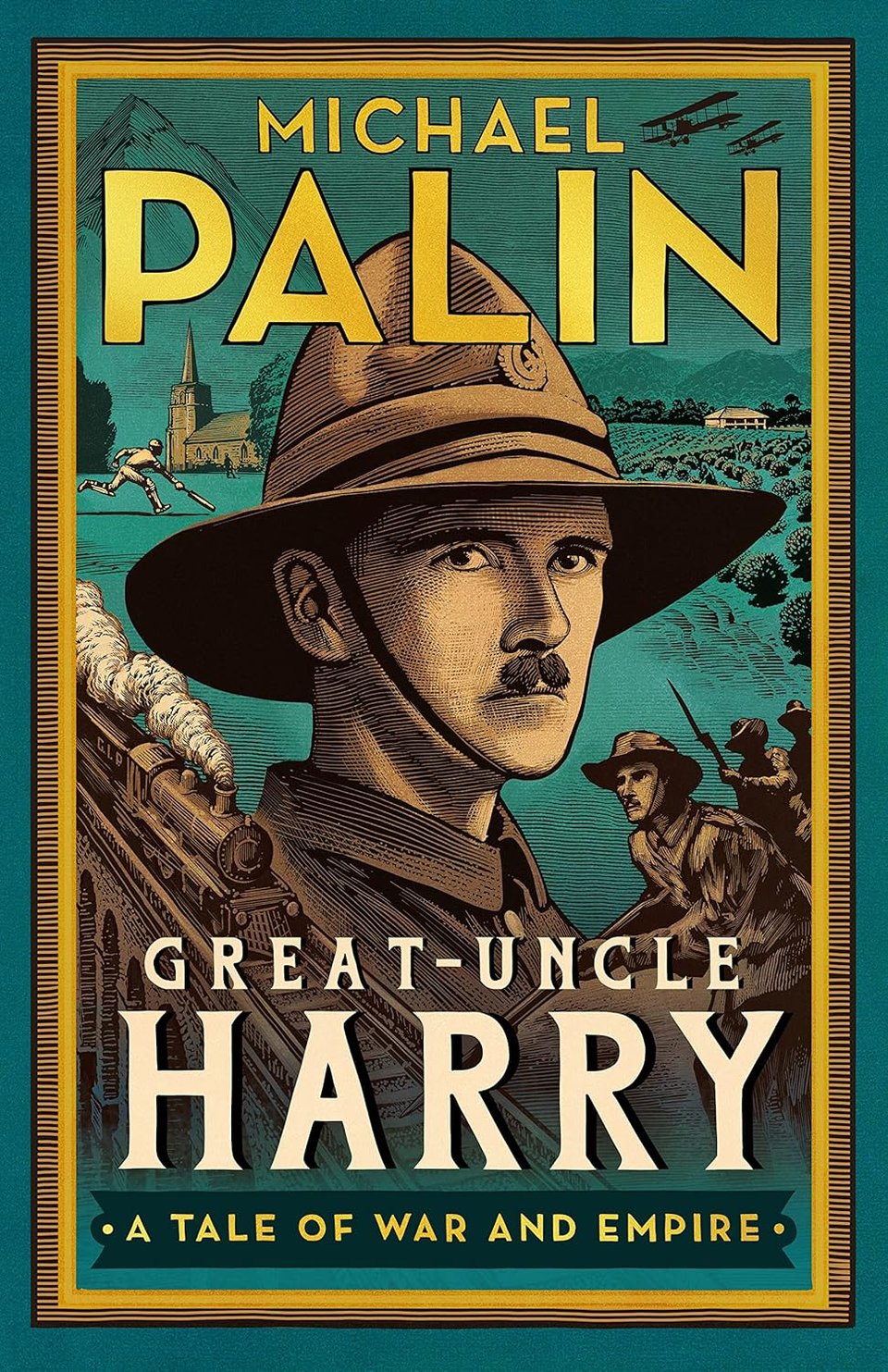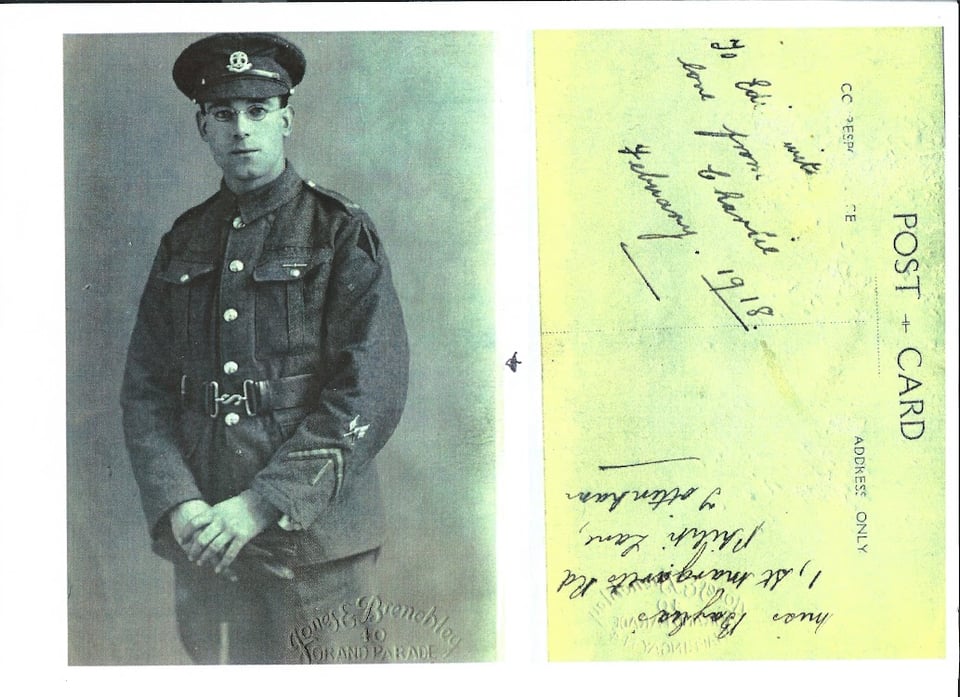2025 Reading Challenge 33 Great-Uncle Harry

The full title is Great-Uncle Harry: A Tale of War and Empire. Another Michael Palin tour de force, where he delves deep and wide to find out the background of one of his relatives who died in the First World War.

My Great-Uncle Charlie also died in the First World War; he was 24, so there are some very similar memories reading this book, due in the main to talking to my mum and helping my son do some research into Charlie on my son’s school trip to Belgium.
Reading the book, you can’t help but think that Michael was lucky to have so much support in researching this, well, he IS Michael Palin, national treasure, etc. So he ropes in Peter “Lord of the Rings” Jackson, using his wonderful They Shall Not Grow Old resources to trawl through picture archives to pick out various photos of Harry and his mates on the front line. Michael also gets his hands on the complete set of war diaries and various archives of reports from the front, a veritable treasure trove that seemed to have kicked off the whole, “Could I make a book out of this?”
But then things start to go wrong, or at least, if not wrong, are perhaps not what is expected. Harry is fairly brief in his diaries; in fact, you could say he’s a little dull. To paraphrase, “Nice gal. v. pretty.”, “Poor Jenkins copped it. v. sad.” Ad Infinitum. At times, you can see this grates on Michael; he wants to understand what Harry thinks, he wants to know how he’s feeling after the love of his life, Margie, turns down his marriage proposal, but there is not a great deal of introspection or soul searching. Michael Palin eventually accepts this with a resigned sigh, but you know he perhaps wishes he’d encountered a more insightful, verbose character than Harry.
For me, it is precisely these unsaid things that make the book so powerful; it is about lives shaped as much by what never happened as by what did. Harry tries his hand at many things, not succeeding or at least not being more than moderately successful at anything. He was 32 when he died. Could success and love have been just around the corner? Or was this the continuing story regardless of the interruption of war? Possibly the same could have been said for Private Charlie Bayliss and ten million other souls.
As I read through the book, thinking about Harry’s unfulfilled or simple life, it brought a lump to my throat, that so many of us are potentially in the same boat and do these “Sliding Doors” moments avoid tragedy or present opportunity?
Harry does travel though, he ventures to far-off places, ending up in New Zealand and then, when war breaks out, somehow surviving Gallipoli with the New Zealand regiment he’s now adopted into. Still relatively unscathed, it’s out of the fire pan and into the fire, as he’s relocated to The Somme and there, tragically, he and his regiment are mown down in machine gun fire, his body never found, likely blown to fragments or trampled into the earth as his regiment tried to run the 300 yards between the ally and enemy trenches.
Michael Palin’s journey through the book seems to have softened his initial frustrations; he starts to see Harry as an everyman, representative of the lives cut short and things that might have been, all for very little impact on the world or the progression of the Empire.
Charlie, in my mind, has even less significance, but perhaps more poignancy, no famous person writing about him, just a dwindling number of family members with a couple of photos and a few stories to pass down. Charlie was still training to become a draughtsman; his dream to become a cartoonist never materialised, and love, if there was anyone, was unrequited. My mum told me that Charlie loved sending half-finished drawings to his sister, saying he’ll do the rest when he’s back home, somewhere, though we are still looking, amongst boxes, books and bric-a-brac, is the final drawing that Charlie sent his sister. A pledge lost to time.

TTRPG Thoughts:
Too many thoughts about family, death and loss to clearly consider this.